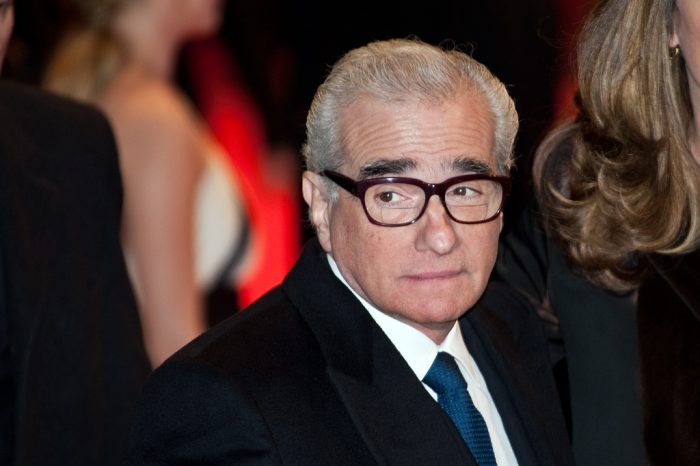
Image by “Siebbi,” Wikimedia Commons
When Federico Fellini died in 1993, New York Times obituary writer Bruce Weber made a confession: “I never cared for his movies.” In a declaration of “raging middlebrow-ism” echoed by Dan Kois’ 2011 admission of his lack of interest in “eating my cultural vegetables,” Weber writes that “Last Year at Marienbad was such a bafflement years ago that I gave up on it and fell asleep in the theater, and chances are I’ll never go back and see it again. Among windy American novels I still prefer Lonesome Dove to Gravity’s Rainbow and, to extend the argument to non-narrative forms, as innovative as John Cage and Andy Warhol were, I still hear noise and see a soup can.”
This drew a response from no less accomplished a filmmaker — and no less omnivorous a film-lover – than Martin Scorsese. The director of Taxi Driver, Raging Bull, and Goodfellas found distressing less Weber’s opinion than “the underlying attitude toward artistic expression that is different, difficult or demanding,” likening it to that of a then-recent Budweiser commercial associating “foreign films” (of which we’ve previously featured Scorsese’s list of 39 essentials) with “weakness, complexity, tedium. I like action-adventure films too. I also like movies that tell a story, but is the American way the only way of telling stories?”
The issue goes well beyond cinema and Scorsese knows it, framing it not just as a matter of “film theory” but as one of “cultural diversity and openness. Diversity guarantees our cultural survival. When the world is fragmenting into groups of intolerance, ignorance and hatred, film is a powerful tool to knowledge and understanding.” By the end of his response, Scorsese argues not against Weber but against the very mindset that “celebrates ignorance” (and “unfortunately confirms the worst fears of European filmmakers”) by, like that beer spot, asking questions such as “Why are foreign movies… so foreign?” only to conclude, “Why ask why?”
Scorsese, in turn, closes with a few questions of of his own:
Is this closed-mindedness something we want to pass along to future generations?
If you accept the answer in the commercial, why not take it to its natural progression:
Why don’t they make movies like ours?
Why don’t they tell stories as we do?
Why don’t they dress as we do?
Why don’t they eat as we do?
Why don’t they talk as we do?
Why don’t they think as we do?
Why don’t they worship as we do?
Why don’t they look like us?Ultimately, who will decide who “we” are?
You can read Scorsese’s full response at Letters of Note.
Related Content:
Martin Scorsese Reveals His 12 Favorite Movies (and Writes a New Essay on Film Preservation)
Martin Scorsese Creates a List of 39 Essential Foreign Films for a Young Filmmaker
Martin Scorsese Makes a List of 85 Films Every Aspiring Filmmaker Needs to See
Martin Scorsese Introduces Filmmaker Hong Sangsoo, “The Woody Allen of Korea”
Martin Scorsese Names His Top 10 Films in the Criterion Collection
Martin Scorsese Names the 11 Scariest Horror Films
Based in Seoul, Colin Marshall writes and broadcasts on cities and culture. He’s at work on a book about Los Angeles, A Los Angeles Primer, the video series The City in Cinema, the crowdfunded journalism project Where Is the City of the Future?, and the Los Angeles Review of Books’ Korea Blog. Follow him on Twitter at @colinmarshall or on Facebook.


He doesn’t understand that fragmenting into groups creates diversity. And he thinks culture can be preserved by the one and not the other. Am I missing something here?
There is no evidence that the world is fragmenting into intolerance. Rather, the wilfully blind have overreached, and the rational and caring folk are pushing back. In any case, Bobby is right; diversity COMES FROM separation.
But aside from that, there is a difference between sharing information, perhaps visiting, and actually inviting people to come in and stay forever, even though they are living in the past (and worse) that good chunks of your population have struggled to put behind us all.